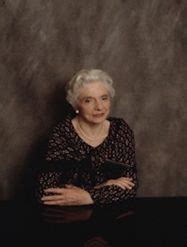A Quote by Jennifer Aniston
You hit the wall almost right when you get up to the top. If there's a female writer being suggested to do a rewrite on a script, it's always the big boys going, "Mm, let's go with [a man]..."
Related Quotes
Mexico is not going to build it [a wall], we're going to build it. And it's going to be a serious wall. It's not going to be a toy wall like we have right now where cars and trucks drive over it loaded up with drugs and they sell the drugs in our country and then they go back and, you know, we get the drugs, they get the cash, okay, and that's not going to happen.
That is as true for fiction or non-fiction. The writer has to really know their subject. It is really important to remember that the readers are a lot smarter than the writer. Also, good writing has to do with rewriting. You will never get it right the first time. So you rewrite and rewrite again until you get it right. Until you, and the reader, will be able to visualize what you're writing about.
Once you change the technology - from a film camera to a video camera, or from an 8-mm camera to 16 mm - you change completely the content. With 8 mm, a leaf on a tree will be made up of maybe four grains. So it's very impressionistic, almost like Seurat. If you switch to 16 mm, the technology gives you hundreds of grains on that leaf.
I’m going to lie this one right on the line, right here, right now: I’m pro big pants. Strident feminism NEEDS big pants. Really big. I’m currently wearing a pair that could have been used as a fire blanket to put out the Great Fire of London at any point during the first 48 hours or so. They extend from the top of my thigh to my belly button, and effectively double up as a second property that I can escape to at weekends. If I were going to run for parliament, it would be solely on a platform of ‘Get Women In Massive Grundie’s’.
Is there a brick wall getting in your way? Fine. That happens. But you have a choice. You can walk away from the wall. You can go over the wall. You can go under the wall. You can go around the wall. You can also obliterate the wall. In other words, don't let anything get in your way. Get a balance, and then let the positive outdistance the negative.
I end up improvising in almost everything to some degree, 'cause it's often necessary on movies. The script is one thing, and it's this kind of theory of what you're going to do, and then you get there on the day and you realize, "Oh, the script is not appropriate to this room, the door's over here."
The woman who wrote the movie [Ladies And Gentlemen, The Fabulous Stains], her name is Nancy Dowd. She's a wonderful writer. She wrote Coming Home. And when I read the script, at that time, I thought, "This movie is going to do for girls what Breaking Away did for boys." I thought it was going to be huge. It was a great script.



































